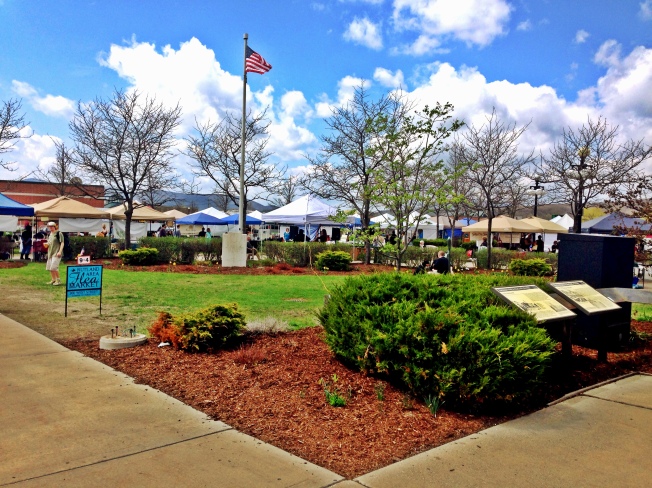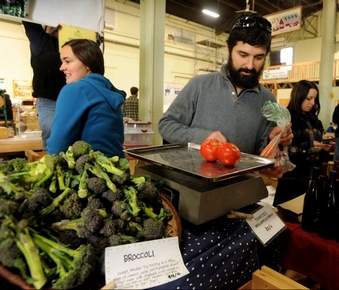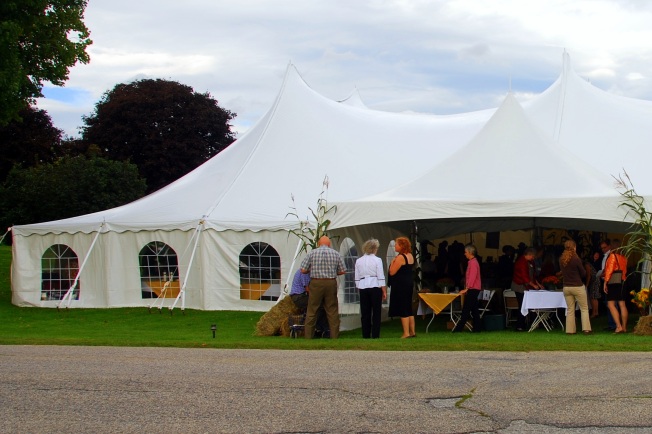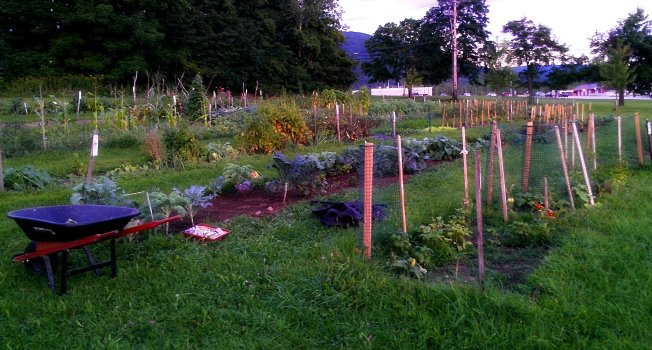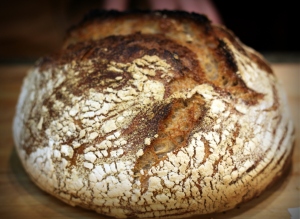By Steve Peters
It’s an exciting time of year. The sun has returned and so has our wonderful outdoor farmers market. I couldn’t think of a better way to spend a Saturday morning in Rutland than browsing the foods and goods of our hardworking growers, producers and artisans. And it’s always fun to chat with friends in the process.
But not all would agree. Not everyone sees a farmers market as such a warm and welcoming space. Perhaps it’s because the market is not arranged in the fashion of a large supermarket – it takes a little experience to figure out the norms. No, there isn’t a checkout counter to scan your way through upon exiting and yes, you actually have to look up from your smart phone and talk with people. Bringing your own reusable bags, on the other hand, is an appreciated, though not mandatory practice. No one is going to turn you away if you ask for one.
Then there are other, larger barriers to overcome. In particular – how do you make local food work on a limited budget? How does a farmers market present itself in a manner that is inclusive of all sectors of the community, and not just to those with expendable incomes?
I don’t claim to have all the answers, but I believe it’s a two way street. Markets need to seek ways to make themselves accommodating to everyone – from the first time shopper with the puzzled look on her face, to the guy who never misses a week. I’m not suggesting that our markets and vendors don’t already do this; in fact, I think as a whole, they’re doing a pretty good job. But as local markets continue to grow and thrive, it’s certainly something to keep in mind. It takes more than just setting up a tent and waiting for the people to arrive. In part, this goes back to Kim Griffin’s point in a Harvest Watch column a few months ago – the farmer has many roles to play in their business, including marketer.
On the other hand, people also need to know the basic skills in order to make shopping local work for them. They need to know the value and nutrition of these foods and why they should at least consider making purchases here, rather than walking by and heading to the Wal-Mart, Price Chopper, or other big box store. They need to know what to do with the foods once they’ve brought them home. Storage and preparation are only the start. Unfortunately, such basic skills and knowledge are not priorities in schools. Coming from a background in education, I’m also not blaming anyone in particular here either; it’s just the nature of society today. As much as we’ve progressed in some ways, I’d argue that we’ve also regressed a bit too.
In my position at RAFFL I’m happy to have the ability to address these issues and help support farmers with marketing (take our Locally Grown Guide, for instance) or educating community members on local food. This time of year, I start doing more local food tastings and cooking demos where I have the opportunity to share my passion and knowledge for local food with others. Of course, I realize that I’m not going to change our society alone and neither is RAFFL. It takes a combined effort throughout the community to enact the changes we’d like to see. In Vermont, we’re already far ahead of the nation in supporting our local foods and businesses, but there is still a long way to go.
For now, here are some quick tips to making local food and farmers markets work for everyone. Perhaps you can add or share these ideas with others – maybe with that friend who thinks buying local is too expensive for them, or that busy family that doesn’t see the value in a visit to the market.
1) Almost all farmers markets accept 3SquaresVT these days. Look for the signs where you can use your card in exchange for tokens. Also, if on a low income, take advantage of Farm to Family coupons available through BROC. These are free dollars to spend at a farmers market.
2) For the best deals, buy foods at the peak of their season. Search for “Vermont harvest calendar” for a handy guide from Green Mountain Farm to School.
3) When you can, buy in bulk. Bulk buying often allows for a better deal. Can’t use or store it all? Go in on it with friends or family. Or, ask a farmer if they offer a CSA market share. With this approach, you can pay an amount upfront and receive a credit throughout the season, often at a better rate.
4) Ask for seconds. Not everything a farmer grows is perfect. Sometimes, they’ll have bruised or imperfect produce available for less. These are called “seconds.”
5) Buy a few starter plants. Many farmers are offering starts right now and for just a few dollars (of which 3SquaresVT benefits can be used) you can get several plants that will produce throughout the season. Even a small garden patch or a few pots can produce a surprising amount of food.
6) Talk to a farmer. They’re always happy to tell you about the foods they grow.
Steve Peters manages communications and food education at RAFFL. He spends his free time with other food related hobbies, such as cooking, gardening and baking. Reach him at steve@rutlandfarmandfood.org.
